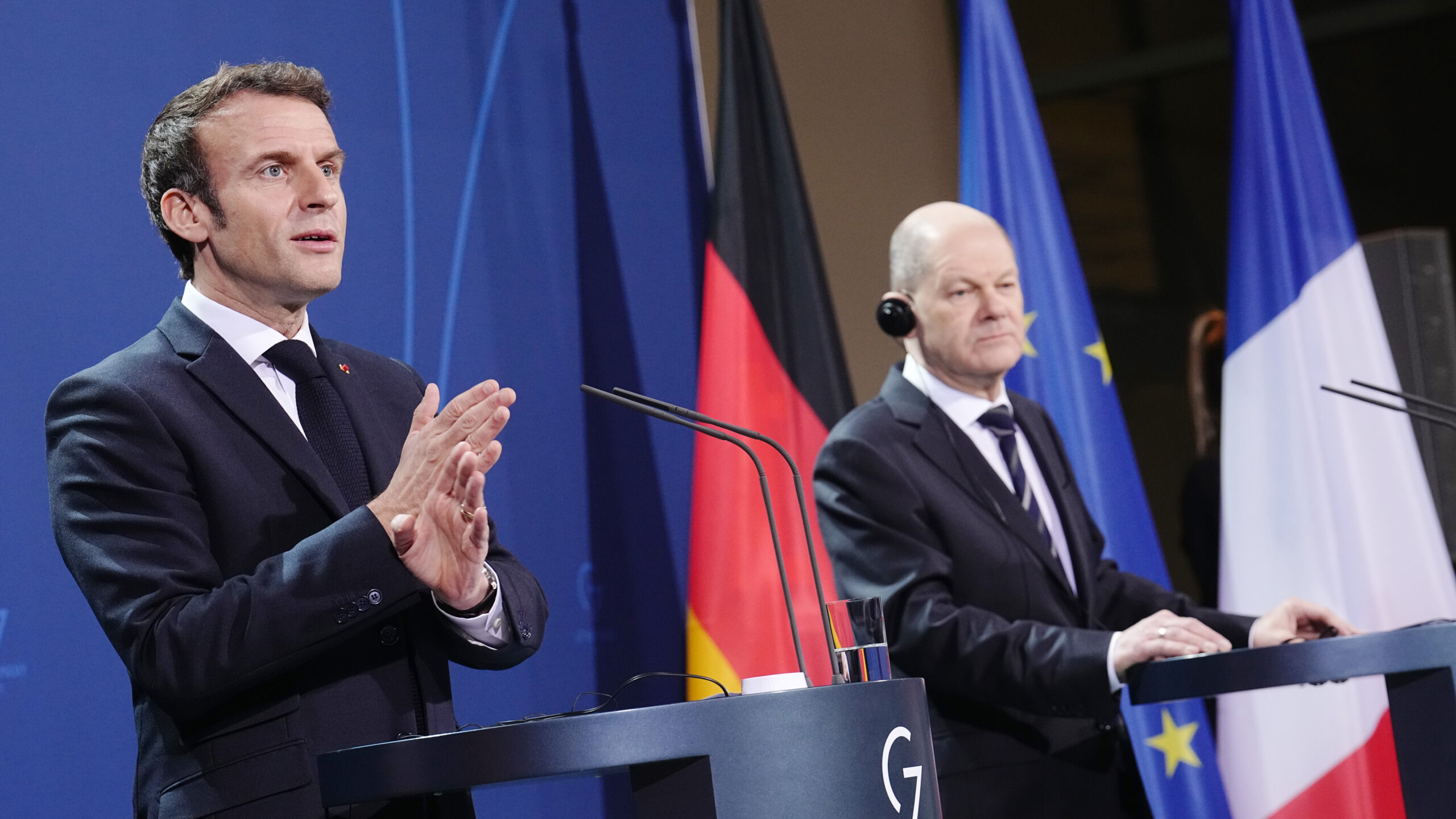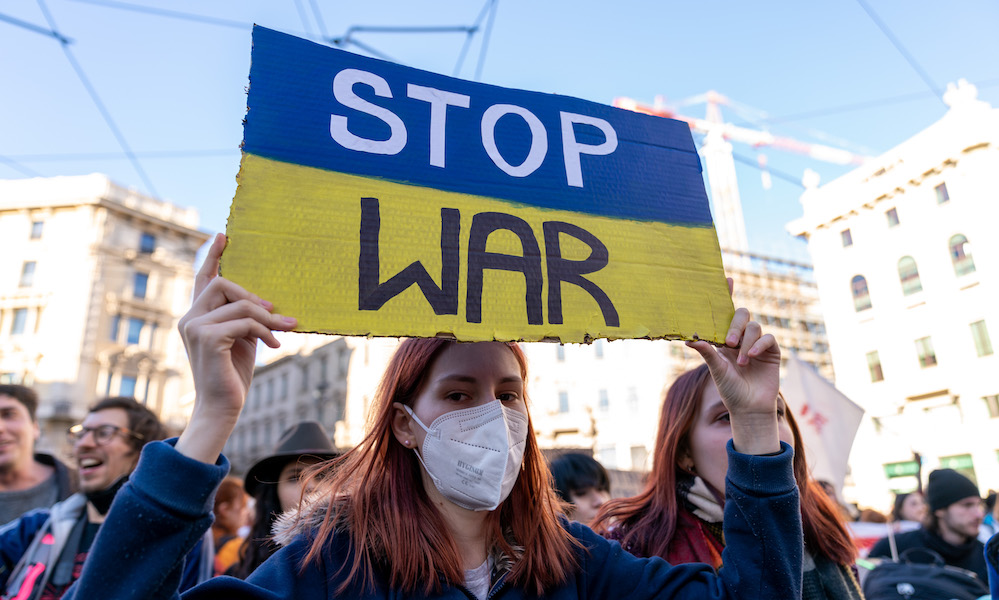At the EPC summit on Thursday, European Union leaders reaffirmed unwavering support for Ukraine, but warned Ukrainian President Volodymyr Zelensky, that the EU would be unable to fully fill any budget vacuum left by the US.
Fears have been fueled by political upheaval in Washington, which caused President Joe Biden to say on Wednesday that it “does worry me” that US backing for Ukraine could be jeopardised.
“Can Europe fill the void that the United States has left?” “Certainly, Europe cannot replace the United States,” stated the EU’s foreign policy leader, Josep Borrell, upon his arrival in Spain for the European Political Community (EPC) conference.
Speaking to the EPC, Zelensky voiced anxiety about the “political storms” raging in Washington, but insisted that he still had bipartisan support in the US for continuing help.
“America assisted us and Europe in surviving.” And now it is critical for Europe not to hide sails from the wind in order to weather the storm,” he remarked. The EU and the United States, which comprise the majority of NATO members, are critical to Ukraine’s fightback.
The European Union and its member countries have pledged Ukraine more than $100 billion in multi-year assistance, including armament deliveries. The US has pledged $43 billion in military aid, while Congress has approved $113 billion in aid, including humanitarian assistance.
However, new US financing for Ukraine has been halted as part of a weekend agreement reached with opposition Republicans to avoid a US government shutdown. That conclusion, according to Josep Borrell, “was certainly not expected — and it’s certainly not good news.”
He went on to say that the EU hoped that “there will not be a definite position of the US.”
“Ukraine needs the support of the European Union… but also the support of the US,” he went on to say.
Ukraine’s EU Membership
Maintaining European support to Ukraine was a significant subject during the EPC meeting in Granada, which drew leaders from practically every country on the European continent except Russia.
“I believe that all leaders understand the risks of not providing full support to Ukraine,” said Moldovan President Maia Sandu, whose nation, Ukraine’s neighbour, is pushing for EU membership.
However, Luxembourg Prime Minister Xavier Bettel, like Borrell, stated that “we cannot compensate” for any deficit in US aid to Ukraine.
“That would be not possible, but we have to continue to support as much as we can,” he told reporters.
While acknowledging that Europe has little voice in “internal US affairs,” Bettel stated that “we hope that it will find a solution soon in the interest of Ukraine.”
Ursula von der Leyen, chief executive of the European Commission, described the US withdrawal of financial aid to Ukraine as a matter of “timing” for Washington.
She emphasised that work was underway to implement half of the pledged EU funding to Ukraine – 50 billion euros ($53 billion) over the next four years – in order to provide Kyiv with “predictability and reliability” for its strained budget.
According to leaders at the EPC meeting, Russian President Vladimir Putin calculated that the West would tired of long-term backing for Ukraine, giving him a road to triumph.
“I think Russia wants us to be tired,” Estonian Prime Minister Kaja Kallas stated, adding, “but we should show them that we aren’t.” We must assist Ukraine for as long as it takes.”
The topic, though, was expected to dominate a two-week EU-US summit in Washington with Biden, von der Leyen, and European Council President Charles Michel.
Aside from the ongoing conflict in Ukraine, the leaders at the EPC summit were to discuss migration, with British Prime Minister Rishi Sunak and Italy’s Georgia Meloni advocating for a strategy that would prohibit boats transporting asylum seekers from leaving the Mediterranean.
Fewer Americans support arming Ukraine
Meanwhile, according to a Reuters poll issued Thursday, the percentage of Americans across the political spectrum who support supplying guns to Ukraine has decreased.
The poll, taken on Tuesday and Wednesday, found that only 41 percent of respondents thought that the US should give weapons to Ukraine, compared to 65 percent in a June 2023 study.
Support for deploying arms to Ukraine is dwindling across the board. Democratic support plummeted from 81% in June to 52% in October.
During the same time frame, Republican support fell from 56% to 35%. Independent support fell from 57 to 44 percent.
The drop in support follows the passage of a continuing resolution by Congress on Saturday to prolong government funding through Nov. 17, which did not include financing for Ukraine. However, many lawmakers have pledged to pass separate legislation to provide greater assistance in the near future.
President Biden has asked Congress for further help for Ukraine, and the White House has warned of the risks of not providing more money.
The issue has also become significant in the GOP presidential primary for 2024, as a more isolationist perspective of foreign policy has dominated the party’s hard-right flanks.
According to the most recent poll, support for giving financial aid to Ukraine is even lower than support for delivering guns. In the October poll, 37% of respondents believed that the United States should provide financial help, including 51% of Democrats, 26% of Republicans, and 41% of independents.
However, a recent poll found that a bigger proportion of Americans support both sorts of help for Ukraine. According to a poll released Wednesday by the Chicago Council on Global Affairs, 61 percent of respondents favoured sending economic aid to the country, while 63 percent supported supplying weaponry and military supplies.
Though support was higher across the political spectrum, there was a partisan divide, with 76 percent of Democrats, 47 percent of Republicans, and 58 percent of independents favouring economic aid and 50 percent of Republicans, 77 percent of Democrats, and 60 percent of independents favouring military aid.
The Reuters survey comprised 1,005 adults from around the country. The credibility interval was 3.8 percentage points plus or minus.








